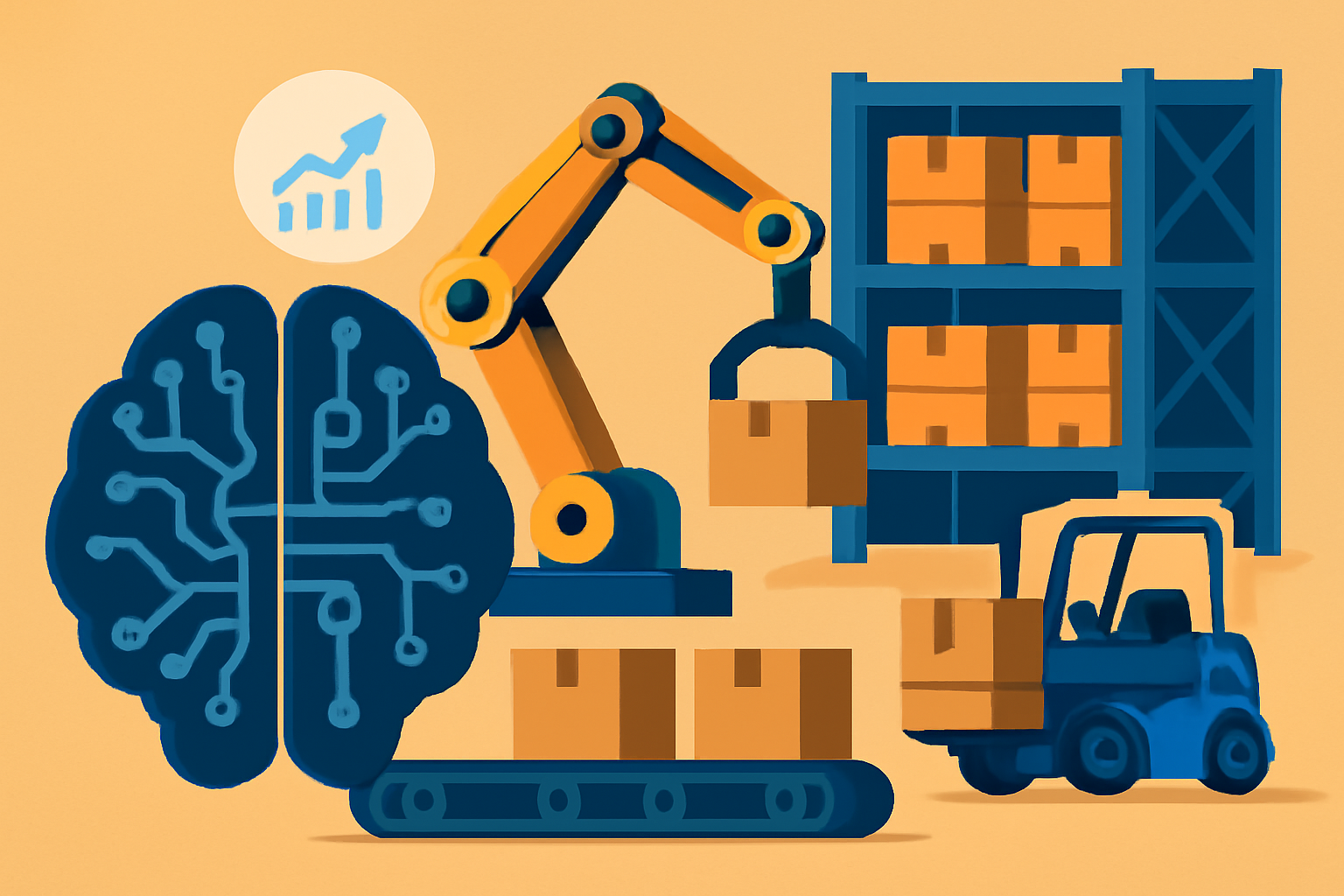As global markets continue to navigate supply chain volatility, a groundbreaking new report is signaling that the next wave of disruption—and opportunity—may be powered by artificial intelligence. Released by logistics platform Pando in partnership with JBF Consulting, the State of AI in Logistics 2025 report paints a compelling picture of how AI is no longer a futuristic concept but a present-day disruptor transforming the backbone of global trade.
With investor attention increasingly focused on how technology can drive cost efficiency, boost margins, and enhance operational resilience, this report couldn’t have come at a more critical moment. From port congestion to inflation-driven freight costs, the logistics industry is under pressure—and AI may be the high-leverage solution investors have been waiting for.
AI Is Reshaping the Logistics Battlefield
According to the State of AI in Logistics report, AI technologies are now embedded in critical operational areas including:
- Predictive Analytics: AI can forecast demand fluctuations and shipping delays, enabling proactive decision-making and cost savings.
- Automation: Intelligent systems are now automating warehousing, inventory management, and even last-mile delivery operations.
- Real-Time Decision Engines: AI enables dynamic rerouting of shipments, instant carrier selection, and real-time cost optimization.
Pando CEO Nitin Jayakrishnan emphasized that AI is “no longer optional” in logistics. “It’s a competitive differentiator,” he said during the report’s launch. With global logistics costs consuming nearly 10–12% of GDP in many countries, even marginal efficiency gains from AI adoption can translate into billions saved across the supply chain.
Why This Matters for Investors
Logistics is a $9 trillion global industry, and it’s undergoing a technological awakening. Investors looking for exposure to high-growth, high-need segments should note the following drivers:
- Efficiency Equals Earnings: Companies implementing AI in logistics report up to 20% reductions in operational costs and 25% improvements in delivery times, according to a McKinsey & Co. 2024 logistics digitization survey.
- Market Leader Advantage: Publicly traded logistics firms like Expeditors International (EXPD) and XPO, Inc. (XPO) have already begun integrating AI in route optimization and freight forecasting tools, positioning themselves ahead of traditional competitors.
- Funding Surge: According to PitchBook, venture capital investment in AI-driven logistics startups reached $5.8 billion globally in 2024—a 47% YoY increase—underscoring institutional belief in the sector’s upside potential.
Future Trends to Watch
1. AI-as-a-Service for Supply Chains
Cloud-based AI tools tailored for mid-sized logistics providers are democratizing access to advanced analytics, which could enable mass adoption in 2025 and beyond.
2. Regulatory Shifts & ESG Synergies
Governments in the EU and U.S. are encouraging carbon-reducing supply chain tech. AI’s ability to optimize fuel use and reduce waste aligns well with ESG goals, making logistics firms more attractive to sustainability-focused investors.
3. Strategic Acquisitions
Big players in transportation and cloud infrastructure (think Amazon, Microsoft Azure, and FedEx) are expected to snap up AI logistics firms, creating both exit and acceleration opportunities for early investors.
Actionable Investment Insight
Investors should monitor AI-first logistics firms—both established players adopting new technologies and startups leading innovation. Key indicators to watch include partnerships with AI vendors, patent activity in predictive logistics, and mentions of AI in earnings calls. ETFs focused on logistics and automation, such as Global X Autonomous & Electric Vehicles ETF (DRIV) or iShares Transportation Average ETF (IYT), may offer diversified exposure.
With logistics demand poised to accelerate in the face of geopolitical realignments and e-commerce expansion, AI-powered efficiency gains could become the new gold standard—and the new growth engine.
For daily, investor-focused insights into how technology is shaping the future of business, stay ahead with MoneyNews.Today—your trusted source for what’s next in finance.





